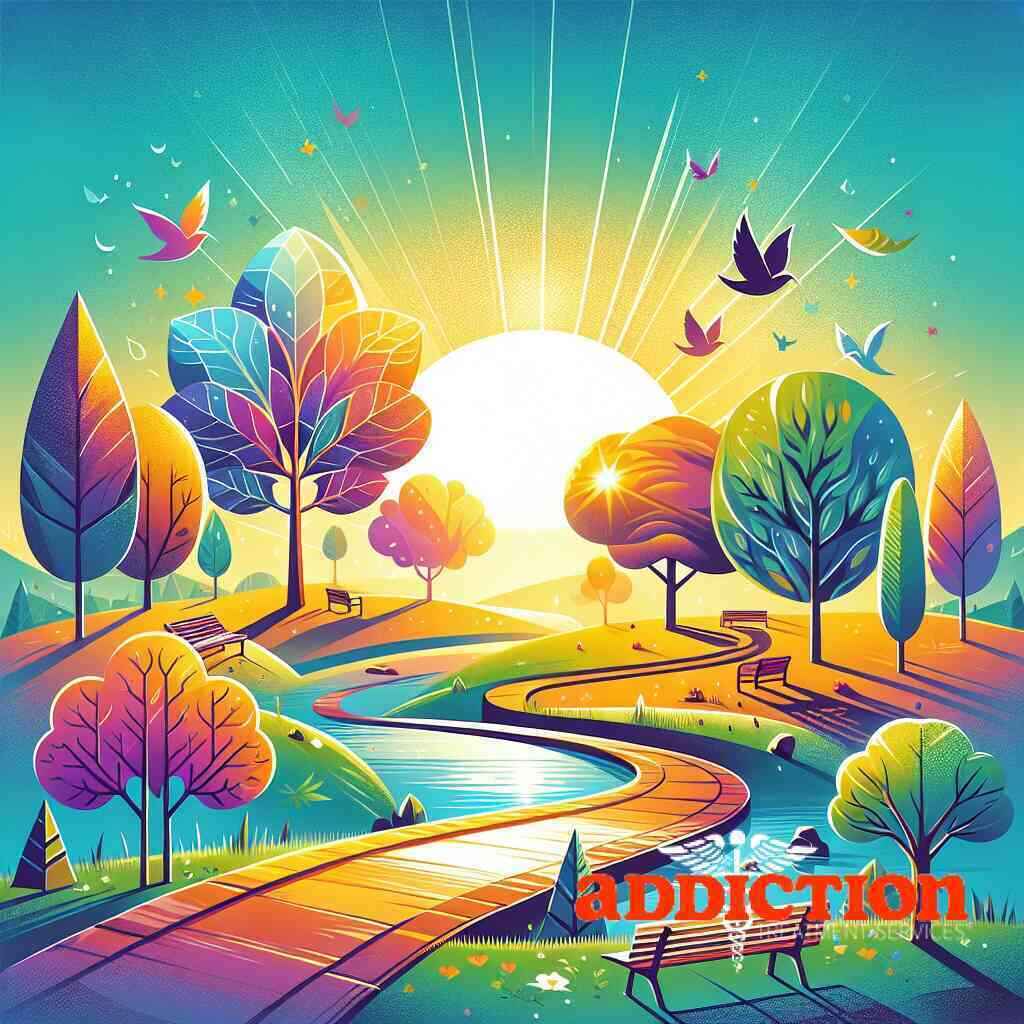 Posted On: 07/08/2024
Posted On: 07/08/2024Introduction to Recovery Support Services
Understanding the Basics of Recovery Support
Recovery Support Services encompass a wide array of non-clinical, personalized services designed to assist individuals and families in initiating, stabilizing, and maintaining long-term recovery from behavioral health disorders, notably mental illnesses and substance use disorders. These services are grounded in community-based support and operate on the foundational belief that recovery is a deeply personal and unique process that requires more than just clinical intervention. Recovery support extends beyond mere abstinence, aiming to improve the overall quality of life through emotional, social, and spiritual health.
The critical elements that define these services include peer support, sober living environments, employment and educational support, and access to community resources and recovery groups. By focusing on these areas, recovery support services aim not just to prevent relapse but also to enable a fulfilling and self-sustained life in recovery.
The Role of Addiction Treatment Services in Recovery
Addiction Treatment Services play a pivotal role in the broader recovery support ecosystem by acting as a gateway to a range of treatment and support options. At its core, the mission is to bridge the gap between individuals suffering from substance use disorders and the treatment or support services they require to overcome these challenges. This is accomplished through an extensive directory of addiction treatment centers across all 50 states, offering a plethora of options from detox and residential treatment to outpatient care and specialized programs like dual diagnosis treatment.
Furthermore, Addiction Treatment Services underscores the importance of informed decision-making by providing detailed information on the different pathways to recovery. This includes explanations of the variety of treatment methodologies, such as medication-assisted treatment, behavioral therapies, and the integration of holistic approaches to address not just the addiction but the person as a whole.
Defining Success in Addiction Recovery
Success in addiction recovery transcends the mere cessation of substance use. It encompasses a holistic transformation where the individual achieves not only physical soreness but also mental and emotional wellness. It’s a state where the recovering person can live a self-directed life and realize their full potential.
A crucial aspect of defining success in recovery is the recognition of recovery as a lifelong journey, not a destination. This perspective helps in setting realistic expectations, celebrating small achievements, and acknowledging that setbacks are part of the process, not failures. Addiction Treatment Services emphasizes building resilience, enhancing coping strategies, and fostering a supportive community as integral to sustaining recovery. By adopting such a broad definition of success, the focus shifts from overcoming addiction to thriving in recovery, marking a significant shift in how recovery is perceived and pursued.
Core Components of Recovery Support Services
Peer Support Services and Their Impact
Peer Support Services form a cornerstone of Recovery Support Services, emphasizing the power of shared experiences and empathy in the recovery journey. These services involve individuals who have successfully navigated the path of recovery themselves and are trained to assist others in their journeys. The core premise is that those who have experienced addiction and come out on the other side possess invaluable insights and a unique ability to connect with those currently struggling.
By fostering an environment of mutual understanding and respect, peer support workers offer more than just guidance; they offer hope. Through one-on-one mentoring, group meetings, and even informal social support, they help demystify the recovery process and tailor their advice to match the individual’s needs. This personalized support mechanism can significantly enhance the motivation and resilience of those in recovery, making peer support a vital component in the fabric of recovery services.
The Essence of Sober Living and Lifestyle
Sober living and lifestyle are pivotal in reinforcing the day-to-day reality of living substance-free. Sober living homes, often seen as a bridge between an inpatient facility and the “real world,” provide a structured, safe environment where individuals can live with their peers in recovery. These homes enforce sobriety while allowing residents to gradually rebuild their independence and life skills in a supportive setting.
Beyond the physical space, the essence of a sober lifestyle extends into daily practices, social circles, and personal growth activities that support sobriety. Embracing a sober lifestyle means finding joy and fulfillment in activities that do not involve alcohol or drugs – from pursuing hobbies to engaging in fitness routines and exploring spirituality or meditation. This holistic approach to lifestyle change is critical for long-term recovery, as it helps individuals build a new, positive identity beyond their addiction.
Incorporating 12-step Programs and Other Relapse Prevention Strategies
12-step programs like Alcoholics Anonymous (AA) and Narcotics Anonymous (NA) are well-established relapse prevention strategies that offer a structured pathway to recovery. These programs are based on the principle of mutual support and provide a step-by-step framework to address the emotional and psychological aspects of addiction. Participation in these programs can offer a sense of belonging and a shared purpose, essential components in maintaining long-term sobriety.
In addition to 12-step programs, other relapse prevention strategies include cognitive-behavioral therapy, stress management techniques, and the development of a personal relapse prevention plan. These strategies are designed to equip individuals with the tools necessary to recognize and manage triggers, cope with stress healthily, and make proactive decisions in favor of their recovery. Integrating these various approaches provides a robust defense against relapse, catering to the diverse needs and preferences of those in recovery.
Holistic Recovery Support for Physical, Mental, and Emotional Well-being
Holistic recovery support goes beyond focusing on sobriety alone, addressing the physical, mental, and emotional aspects of well-being that contribute to a fulfilling life in recovery. This holistic perspective ensures that treatment and support services cater to the whole person, not just the addiction. It includes nutritional counseling, physical fitness, mindfulness practices, and access to mental health services, all aimed at improving overall health and resilience.
Recognizing that mental health issues often co-occur with substance use disorders, holistic support also means offering integrated treatment options that address both sets of needs simultaneously. This may involve working with a mental health professional who is experienced in dual diagnosis cases, ensuring that all aspects of an individual’s health are treated in tandem. Emphasizing holistic well-being is essential for sustainable recovery, as it lays a foundation for individuals to rebuild their lives with balance, health, and fulfillment at the forefront.
Customized Recovery Coaching to Navigate Recovery Challenges
Customized recovery coaching provides personalized guidance and support as individuals navigate the complexities of their recovery journey. Recovery coaches are trained professionals who work alongside their clients, helping to set recovery goals, develop action plans, and identify obstacles to success. Unlike traditional therapy, recovery coaching is action-oriented and future-focused, with an emphasis on enhancing the client’s capacity to manage their recovery independently.
Coaching sessions cover a range of topics, from managing cravings and developing healthy coping mechanisms to addressing relationship issues and financial stress. By tailoring their approach to the specific needs and circumstances of each client, recovery coaches play a pivotal role in ensuring that recovery strategies are sustainable and adapted to real-life challenges. This personalized support fosters a proactive attitude toward recovery, empowering individuals to take ownership of their journey and move confidently toward their goals.
Building a Comprehensive Recovery Plan
Creating Individualized Recovery Plans
Every journey towards recovery is unique, reflecting the complex nature of substance use disorders and their impact on individuals’ lives. Recognizing this diversity, a foundational step in effective recovery support is the development of individualized recovery plans. These plans are collaborative, dynamic blueprints that map out the recovery process, tailored to fit the specific needs, goals, and circumstances of the individual. They account for multiple aspects, including the type of substance used, severity of dependence, personal health issues, and life commitments. This customization ensures that the recovery plan is not just a guide but a personal commitment to healing and growth, emphasizing the proactive role individuals play in their recovery process. By setting clear, achievable goals and outlining strategies to address potential obstacles, individualized recovery plans empower those in recovery to take ownership of their journey toward wellness. Contacting expert resources like Addiction Treatment Services can provide a starting point for creating these vital plans.
Incorporating Substance Abuse Education into Recovery
Education plays a pivotal role in the recovery process, equipping individuals with the understanding they need to navigate the challenges of recovery effectively. Substance abuse education covers a broad spectrum, from the biological impact of drugs and alcohol on the brain and body to the psychological factors that contribute to addiction. By deepening their understanding of these aspects, individuals are better prepared to engage with their recovery process and make informed decisions about their care and lifestyle. Moreover, education serves as a preventive tool, offering strategies to recognize triggers and cope with cravings and reducing the risk of relapse. Access to reliable information, such as through Addiction Treatment Services in California, can guide individuals and families toward evidence-based treatments and supportive resources that reinforce recovery.
Family Support and Its Significance in Addiction Recovery
Family involvement is a critical component of successful recovery, providing emotional support, motivation, and encouragement throughout the rehabilitation process. Strong family engagement can significantly impact the individual’s commitment to recovery, fostering a supportive environment that encourages healing and growth. Families can contribute positively by participating in therapy sessions, learning about substance use disorders, and understanding how to offer constructive support without enabling addictive behaviors. Additionally, family support extends beyond the immediate family to include chosen families, friends, and community members who provide empathy, understanding, and encouragement. Resources like Recovery community organizations in addiction rehabilitation can offer guidance on building a supportive network that values open communication and mutual respect.
Life Skills Development for Sustaining Recovery
Beyond the initial steps towards sobriety, long-term recovery requires the development of life skills that support a healthy, substance-free lifestyle. These skills range from financial management and employment readiness to stress management and healthy interpersonal communication. Developing such competencies allows individuals to rebuild their lives, foster self-sufficiency, and enhance their quality of life. Programs often incorporate life skills training into their recovery support services, recognizing that empowerment and independence are key to preventing relapse and sustaining recovery. Engaging in intensive outpatient programs in Michigan 2024, for instance, can provide structured opportunities for individuals to practice these skills in a supportive, real-world context.
Utilizing Recovery Wellness Planning and Recovery Resilience Building
Recovery wellness planning involves creating a holistic plan that addresses not only the physical aspects of recovery from substance use disorders but also the mental, emotional, and spiritual well-being of the individual. This comprehensive approach ensures that recovery is sustainable, focusing on building resilience against future stressors and relapse triggers. Resilience in recovery is fostered through techniques such as mindfulness, self-care practices, and ongoing engagement with support networks and recovery communities. Personalized wellness plans may include regular physical activity, balanced nutrition, meditation, and participation in support groups such as Find Alcoholics Anonymous meetings or Narcotics Anonymous Meetings locator, offering a structured approach to managing stress and emotional challenges. Building resilience is about equipping individuals with the tools and resources to navigate the ups and downs of recovery confidently, laying the groundwork for a life of well-being and fulfillment beyond addiction.
Navigating Recovery with Addiction Treatment Services
Leveraging Addiction Treatment Centers for Continued Support
In the wide-spanning journey of recovery, committing to an addiction treatment center is just the beginning. Addiction Treatment Services ensures that the road to recovery is paved with continuous support, highlighting the importance of post-treatment care. The transition from treatment back to daily life can be challenging; hence, leveraging the foundational support provided by addiction treatment centers becomes crucial. These centers often offer follow-up programs, alum groups, and continued therapy sessions to help individuals maintain their sobriety. Through a comprehensive approach that emphasizes the essential techniques for addiction in Michigan, individuals are equipped with the tools needed to face life’s challenges without reverting to previous habits. This relentless support underscores the commitment of addiction treatment services to ensure every individual has the best shot at a lasting recovery.
Recovery Community Organizations and Their Roles
Recovery Community Organizations (RCOs) play a pivotal role in sustaining long-term recovery by creating an inclusive, supportive environment that champions the recovery lifestyle. These organizations offer a variety of services that complement the clinical aspects of addiction treatment, including peer support groups, educational workshops, and advocacy opportunities. By actively engaging with RCOs, individuals can find a renewed sense of purpose and community, which are crucial elements for sustained recovery. The collaborative efforts of these organizations and Addiction recovery support groups foster a larger network of hope and support, enabling individuals to thrive in recovery and advocate for comprehensive addiction care and policy reform.
The Significance of Addiction Rehabilitation Support Services
The path to recovery is multifaceted, requiring more than just detoxification and therapy. The significance of addiction rehabilitation support services lies in their holistic approach to addressing the various dimensions of recovery. These services, ranging from sober living accommodations to vocational training, provide the necessary tools for individuals to rebuild their lives from the ground up. Programs like the Reco Intensive: Addiction Recovery Center highlight the importance of integrating various support services to address individual needs comprehensively. By focusing on both the psychological and practical aspects of recovery, addiction rehabilitation support services ensure that individuals are not just surviving but thriving in their sobriety.
Finding Sober Activities and Events through ATS
Sobriety does not equate to a life devoid of fun and engagement. Addiction Treatment Services champions the importance of finding joy and fulfillment in sober activities and events. Through a directory of sober living options from Reco Institute, individuals can explore a range of activities that align with their interests and support their recovery journey. From adventure sports and creative arts to community service projects, these activities provide opportunities for personal growth, skill development, and meaningful social interaction, integral components of a rewarding sober lifestyle. Engaging in these events not only reinforces one’s commitment to sobriety but also fosters a sense of belonging within the recovery community.
Emotional Support and Mentorship in Recovery
The emotional upheavals experienced during recovery can be mitigated with the right support system in place. Addiction Treatment Services emphasizes the invaluable role of emotional support and mentorship in navigating the complexities of recovery. Through connections with mentors who have walked the same path, individuals gain insights, encouragement, and practical advice that resonates with their experiences. Programs like the Intensive Outpatient Program in Delray Beach offer structured support while allowing for the flexibility to engage in daily life, proving that recovery support can be both profound and adaptable. Such mentorship relationships inspire hope and demonstrate that with the right support, recovery is not only possible but also life-changing.
Conclusion: Embracing Recovery as a Journey
Harnessing Personal Growth in Recovery
Recovery from substance use disorders is much more than achieving and maintaining sobriety; it’s a profound journey of personal growth. During this transformative process, individuals learn vital life skills, delve into self-discovery, and develop resilience. Harnessing personal growth in recovery involves embracing challenges as opportunities for development, cultivating healthy relationships, and refining coping strategies for life’s obstacles. This path allows for a rediscovery of self, leading to a fulfilling life that was once overshadowed by addiction. Through programs and support offered by resources like Addiction Treatment Services, individuals find a framework to build upon their strengths and pursue a life aligned with their values and aspirations.
The Future of Recovery Support Services
The future of recovery support services lies in innovation and inclusivity, ensuring access to a broad spectrum of services for diverse populations. As the understanding of addiction evolves, so too must the tools and methodologies designed to support recovery. This includes integrating technology such as mobile apps and online support platforms, expanding the availability of services to rural and underserved communities, and tailoring support to address the unique needs of different demographics. The continued stigmatization of addiction and mental health issues is also crucial in encouraging more individuals to seek and maintain help in their recovery journey. Opportunities for education and professional development in the field of addiction support are likely to expand, further enhancing the quality and efficacy of services provided.
Getting Involved with Recovery Support Groups
Participation in recovery support groups offers invaluable benefits, including communal support, shared experiences, and encouragement. These groups, whether 12-step programs like AA and NA or alternative models, provide a foundation for lasting recovery. Engaging with a recovery community fosters a sense of belonging and understanding that is difficult to replicate in other environments. By getting involved, individuals not only receive support but also have the opportunity to give back, sharing their journey and insights with those newly navigating the recovery path. The act of contributing to the recovery of others can reinforce one’s sobriety and enhance personal growth.
Next Steps: Taking Action with Addiction Treatment Services
Taking the first step towards recovery or seeking additional support for ongoing recovery can be daunting. Addiction Treatment Services simplifies this process, offering a comprehensive directory of treatment options and resources tailored to individual needs. Whether you or a loved one is seeking information on the drug detoxification process, exploring sober living houses, or considering an intensive outpatient program, Addiction Treatment Services provides the necessary tools to make informed decisions. By utilizing this resource, individuals can navigate the complex landscape of addiction treatment and recovery support services, ensuring a personalized path toward healing and growth. Taking action with Addiction Treatment Services means embarking on a journey toward a healthier, more fulfilling life supported by a community dedicated to recovery.
Frequently Asked Questions
Question: What exactly are Recovery Support Services, and how can they assist someone struggling with addiction?
Answer: Recovery Support Services are a holistic collection of non-clinical, personalized services designed to aid individuals and families in initiating, stabilizing, and maintaining long-term recovery from substance use disorders and other behavioral health issues. At Addiction Treatment Services, these services encompass a broad scope, including peer support services, sober living communities, recovery coaching, and access to recovery community organizations. By providing an integrated approach to recovery that addresses the various facets of an individual’s needs-emotional support, education on substance abuse, development of life skills, and sober activities, the goal is to ensure a more sustainable recovery. Recovery Support Services bridge the gap between clinical treatment and a fulfilling, sober life by reinforcing the foundations laid by addiction treatment centers and extending support into every aspect of recovery.
Question: How does the blog ‘What is the Definition of Recovery Support Services?‘ align with the mission of Addiction Treatment Services?
Answer: The blog ‘What is the Definition of Recovery Support Services?’ aligns perfectly with the mission of Addiction Treatment Services by providing a comprehensive overview of the essential elements that support recovery from substance use disorders. Our mission is to act as a vital online guide, making the journey toward addiction recovery as accessible and informed as possible. By detailing the components of recovery support- such as peer support, sober living, holistic wellness, and personalized recovery, the blog educates readers on the breadth of services and strategies available to aid in recovery. Through such educational content, we aim to empower individuals and families to make informed decisions about addiction treatment and recovery planning, showcasing our commitment to facilitating personal growth, resilience, and long-term wellness in recovery.
Question: Can Addiction Treatment Services guide creating individualized recovery plans that incorporate both substance abuse support and life skills development?
Answer: Absolutely. Addiction Treatment Services excels at guiding individuals in creating customized recovery plans that address both the challenges of overcoming substance use disorder and the development of essential life skills. We recognize that sustainable recovery transcends the cessation of drug or alcohol use; it involves equipping individuals with the ability, confidence and means to rebuild their lives and thrive. Our comprehensive directory and resources offer access to a variety of programs that feature intensive outpatient care, peer support services, and educational resources on substance abuse. By connecting you with addiction treatment services that emphasize holistic recovery support, including mental health services, vocational training, and sober living communities, we ensure that your recovery plan is not only tailored to your unique journey but also fosters skills and strategies essential for a fulfilling, substance-free life.
Question: How do Addiction Treatment Services incorporate family support into addiction recovery?
Answer: At Addiction Treatment Services, we understand the pivotal role family plays in the journey of recovery. Hence, we emphasize the incorporation of family support in addiction recovery through facilitating access to family therapy sessions, educational workshops on substance use disorders, and family involvement in recovery planning. By directing you to addiction treatment centers and programs that offer comprehensive behavioral health services focusing on the family dynamic, we aim to enhance understanding, communication, and support mechanisms among families. This holistic approach not only aids in the rehabilitation of the individual but also promotes healing and resilience within family relationships, reinforcing a supportive environment crucial for long-term recovery.
Question: What role do sober activities and events play in the recovery process, and how do Addiction Treatment Services help find them?
Answer: Sober activities and events play a significant role in the recovery process by offering rewarding and fulfilling experiences that support a lifestyle free from substance use. These activities foster community, enhance personal growth, and provide opportunities for developing new interests and hobbies that fill the void left by addiction. Addiction Treatment Services assists in finding sober activities and events in our listings and resources, which sober activities and events through our listings and resources sober activities and events through our listings and resources that include top sober houses, community groups, and recreational programs designed for individuals in recovery. By encouraging participation in these sober events, we promote a balanced, healthy lifestyle that supports long-term recovery, ensuring that individuals have access to enriching experiences that contribute to their well-being and happiness.




